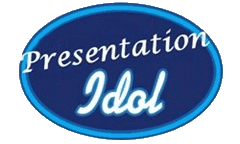Today was the Presentation Idol competition I blogged
about a
couple of weeks ago. Unfortunately, I didn’t win – but believe me when I
say I was up against some serious competition. I think I was about in
the middle of the pack – better than some but clearly not as good as
others.
Since I made a big deal about asking for people ideas on how to present
my topic of choice – external contributions to Microsoft Open Source
projects – I decided I’d post my deck and my script. Yes, I said script.
Usually, I don’t script what I’m going to say word for word like this.
But with only three and a half minutes to present, I thought I’d be as
precise as possible. You’ll notice some lines near the end are in
italics – those are ones I planned on cutting if I was in danger of
going over the time limit.
Feedback, as usual, is most welcome.
Hello, my name is Harry Pierson. I’m a program manager in the Visual
Studio Languages group and I’m here to talk about what I would most like
to do to improve Microsoft.
At Microsoft, we care an awful lot about the software ecosystem.
Searching for the word “ecosystem” on Microsoft.com returns nearly eight
thousand results. We talk about the ecosystem in our marketing and in
our press releases.
In 2007, we commissioned a study of the global economic
impact
of the Microsoft ecosystem. In a word, it’s massive. It’s responsible
for nearly 15 million jobs and drives over half a trillion dollars a
year in tax revenue worldwide.
No wonder we care about the ecosystem so much.
But clearly, we’re not the only ones who care. Microsoft represents a
fairly small percentage of the overall ecosystem. We earn just over 11%
of the total revenue and account for half of one percent of the total
employment within the ecosystem.
That means there are an awfully large number of people with a vested
interest in the continuing success of the Microsoft platform.
With this vast ecosystem in mind, I want to talk about Open Source.
Microsoft and Open Source are often portrayed as enemies. But in DevDiv,
we have several high profile Open Source projects. I work on IronPython,
which has been Open Source for over four years. More recently, the
ASP.NET and Extensibility Framework teams have decided to release some
projects as Open Source.
I believe we should have more Open Source projects at Microsoft. But
more importantly, I feel that we need to go beyond the textbook
definition of Open Source. Our Open Source projects are typically closed
to external contributions. But for the ecosystem at large, Open Source
isn’t just about the availability and distribution terms of the source
code. It also implies a collaborative development model - parties
working together across organizational boundaries, contributing directly
to projects in question.
The thing I would most like to change about Microsoft would be to let
members of our ecosystem contribute code to our Open Source projects.
I can tell you from personal experience, there are members of the
IronPython community who would leap at the opportunity to contribute
code. And their engineering prowess and real world would benefit the
IronPython project tremendously. But the legal process for getting
permission to take contributions is onerous. Worse, the legal stigma
attached to code that isn’t 100% pure Microsoft intellectual property
makes it nearly impossible for any other group inside Microsoft to build
on it.
I realize the onerous legal process is there for a reason: to protect
Microsoft’s interests. But improving IronPython and Open Source projects
like it isn’t just in Microsoft’s best interest; it’s in the best
interest of our ecosystem as well. We need a legal framework that
protects Microsoft while allowing for code contributions. Developing
such a framework will be a challenge. But competitors like Sun, Google
and IBM have already demonstrated that it’s not insurmountable.
Half a trillion dollars annually. 15 Million jobs. 42% of the IT
workforce. The Microsoft ecosystem is the envy of the industry. And
Microsoft is in a unique position to harness the collective experience
and engineering prowess of that ecosystem while simultaneously
dispelling the myth that we are an enemy of Open Source.
It’s time we make this change.
Thank you very much.







